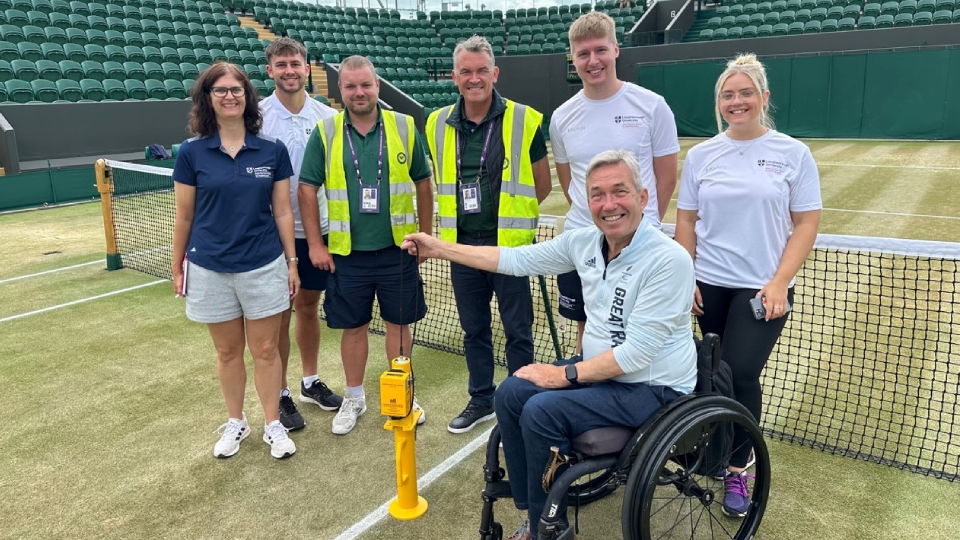Colleagues from The Peter Harrison Centre for Disability Sport (PHC), in collaboration with RGK Wheelchairs and staff of The All England Lawn Tennis Club (AELTC), investigated how wheelchair tennis under different chair configurations and surface hardness impacts the grass surface on which the iconic tournament is played.
The findings will inform AELTC ground staff teams with valuable insights to assist the scheduling of the wheelchair tennis matches depending on surface hardness.
It is hoped that Loughborough’s findings will encourage organisers to schedule even more Wheelchair Tennis matches on SW19's Show Courts in the future.
Lead researcher Professor Vicky Tolfrey explained: “This was a fantastic opportunity bringing together a mixed methods design of technical performance data with qualitative methods of gathering the perceptions of the players.
“I thank Prof Nick Webborn CBE and Geoff Newton OBE (Chair and Former Vice-Chair of the British Paralympic Association) with posing this interesting research question to us. While we have an international academic track record within the sport of wheelchair tennis, this project brought a whole new dimension raising the interest of AELTC colleagues over the three days while we gathered data at Wimbledon.
“In addition, Sandi Procter (LTA President) expressed a keen interest in the project, which will enable us to disseminate our work alongside both the AELTC and LTA to the wider tennis community over the coming months.”
The vigorous testing period involved elite-level athletes – including five-time wheelchair tennis Wimbledon champion Gordon Reid – undergoing a series of drills on court.
Geoff Newton OBE, former Vice-Chair of the British Paralympic Association, added: “The learnings from this research will assist the AELTC, LTA, and the International Tennis Federation (ITF), together with other grass court venues, in the further development of wheelchair tennis on grass.
“There’s strong potential to transfer these learnings to other events in the run up to The Championships. This will hopefully give host venues the confidence to include wheelchair tennis, thus providing additional opportunities for wheelchair players to hone their skills on grass.”
Geoff added: “With benefits both here in the UK and overseas, we’re sure that this research will help players improve their performance on this surface. We’re grateful to all those involved in making this project possible.”
Gordon Reid said: “Playing on grass is physically more challenging, the movement gets heavier and there is less momentum, it’s hard work. So, for that, I’m grateful and excited about this research.
“The different set ups and the testing has been great, I think it will have a positive impact on my performance and the wear and tear on my body”.
The findings from the study are due to be presented to The All England Lawn Tennis Club in due course.
For more information on Peter Harrison Centre for Disability Sport, visit: www.lboro.ac.uk/research/phc/
